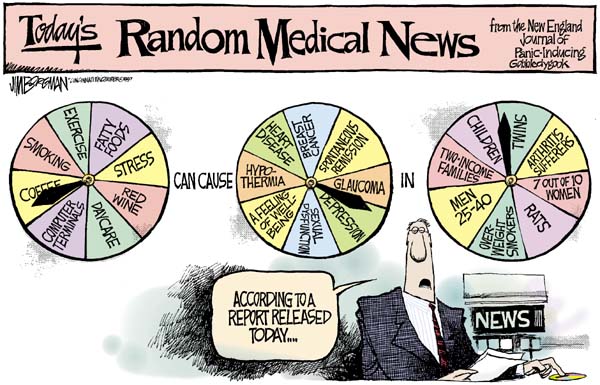 This weekend marks the beginning of the 16th International Congress on Schizophrenia Research, the biennial international meeting this year taking place in the pleasant climes of San Diego, US. The meeting offers a chance to hear about groundbreaking research across a range of domains, including cell biology, animal models, cognitive neuroscience and psychiatric genetics. Moreover, there is a collaborative, friendly atmosphere, with junior and senior colleagues engaging in meaningful, critical discourse in and out of the formal sessions.
This weekend marks the beginning of the 16th International Congress on Schizophrenia Research, the biennial international meeting this year taking place in the pleasant climes of San Diego, US. The meeting offers a chance to hear about groundbreaking research across a range of domains, including cell biology, animal models, cognitive neuroscience and psychiatric genetics. Moreover, there is a collaborative, friendly atmosphere, with junior and senior colleagues engaging in meaningful, critical discourse in and out of the formal sessions.
Despite the warm reception, the inclusion of epidemiological research in the Congress’ program has traditionally been cool. The 16th meeting will not reverse that trend, with one session devoted specifically to epidemiological research, with 10 talks crammed into a mammoth two and a half hour session on Saturday afternoon. To an outsider – or one of the forty or so people attending the sparsely populated ballroom – there will have been little to convince the field, or future programme committees, that epidemiology should move from a mild trait of schizophrenia research to a discipline which should be emblematic of the state of all science conducted within psychiatric and schizophrenia research.
Of the ten scheduled talks, two speakers did not show up, apparently with no prior apologies to the chair. Although there might have been genuine, unavoidable reasons for these cancellations, the lack of courtesy shown to the audience, other speakers, chair and meeting organisers manifests itself as apathetic; a trait that will rarely endear the discipline to future conference committees. To get an oral presentation accepted at a major international meeting should be viewed as an honour – if in doubt, one needs to look no further than the thousands of wonderful poster presentations at ICOSR, of whom I suspect any one would be delighted to receive a wider audience for their research.
Perhaps most concerningly, the quality of the epidemiological research on show was not able to shine through with all the wonderful, disciplined and principled methods that good epidemiological training should permit. In the age of big data, computational psychiatry and causal inference, the session was pockmarked by a series of poorly controlled studies, negative findings (of themselves potentially important, if we can establish that the findings are likely to be true, having considered the caveats of possible chance, bias and confounding) and problematic interpretation of results and their translational meaning for public mental health. There were some highlights in the session, notably some interesting work on polygenetic risk scores which appear not to confound associations between urban living and later psychosis risk, despite people in urban areas having slightly higher PRS for schizophrenia.
As a field, those of us in psychiatric epidemiology have a duty to do more. We need to engage with modern, state of the science with regard to causal inference and other techniques which potentially allow observational epidemiology to inform psychiatric research about aetiological mechanisms in the same way that experimental research has the potential to. Before that, good basic training in epidemiology can serve the whole field of schizophrenia research. Some of psychiatry’s greatest thinkers come from a background in epidemiological training and reasoning. Our core business as epidemiologists is not to show associations between risk factor X and outcome Y, but to bring to bear the principles of designing unbiased, unfounded and robust studies to answer clear research questions with carefully formulated hypotheses. On our MSc in Clinical Mental Health Sciences at UCL, which attracts 80 budding psychologists each year, the epidemiological training our students receive does not seek to teach them how to conduct an epidemiological study, but how to apply critical thinking and epidemiological reasoning to any research “evidence” they may encounter in their future careers. In this respect, our discipline should be proud; we can take a lead in research design across all areas of schizophrenia research, whether in the cell, the mouse or the human. Never has there been a more exciting time to work in mental health research; converging data from social neuroscience, neuropsychology, psychiatric genetics and epidemiology suggest a mix of genetic and environmental factors are critical to shaping psychosis vulnerability. Epidemiologists need to be central to those conversations.
Fortunately, great epidemiological research in schizophrenia does exist, addressing fundamental questions of variance in incidence, prevalence and causes worldwide. For example, forthcoming data from the international multi-site European Network of National Schizophrenia Networks Studying Gene Environment Interactions (EU-GEI) study has brought together a multidisciplinary team of researchers worldwide to test vital questions about how genetic and environmental factors may combine to increase psychosis risk. Such major consortia are never undertaken lightly, and the fruits of this study – amongst many other carefully designed epidemiological studies – should come to bear in future meetings. Until then, let’s promote and celebrate the uses of epidemiological reasoning throughout schizophrenia research, and be part of the conversation about the strength of evidence across the state of science in our field.